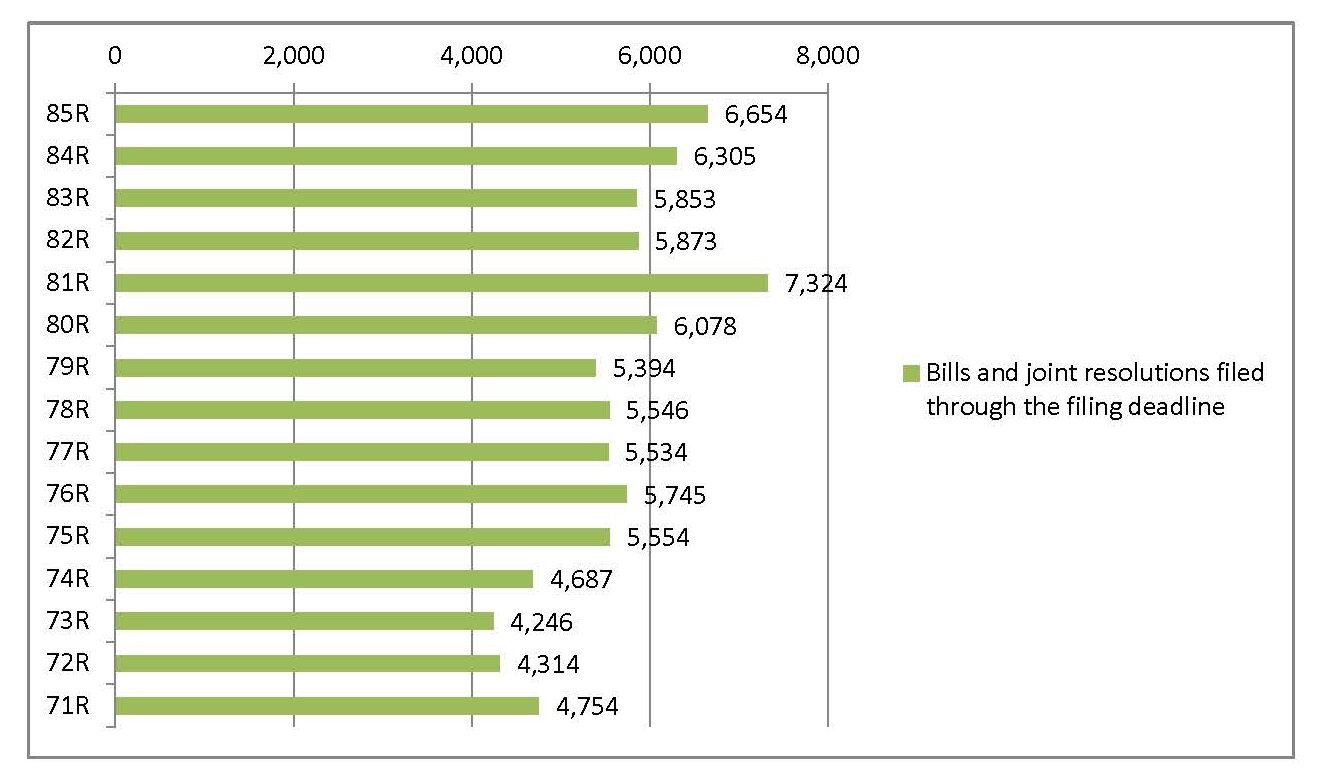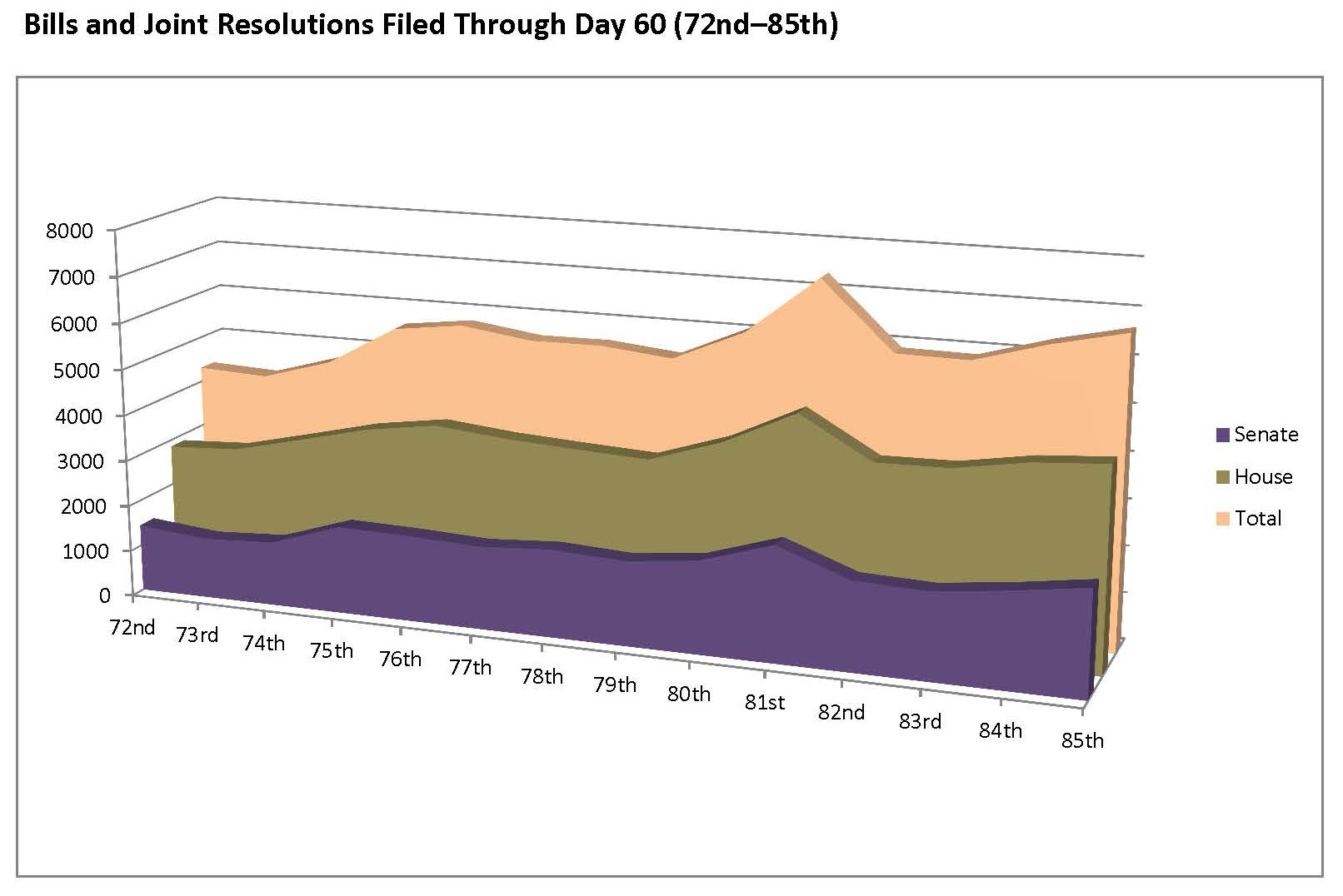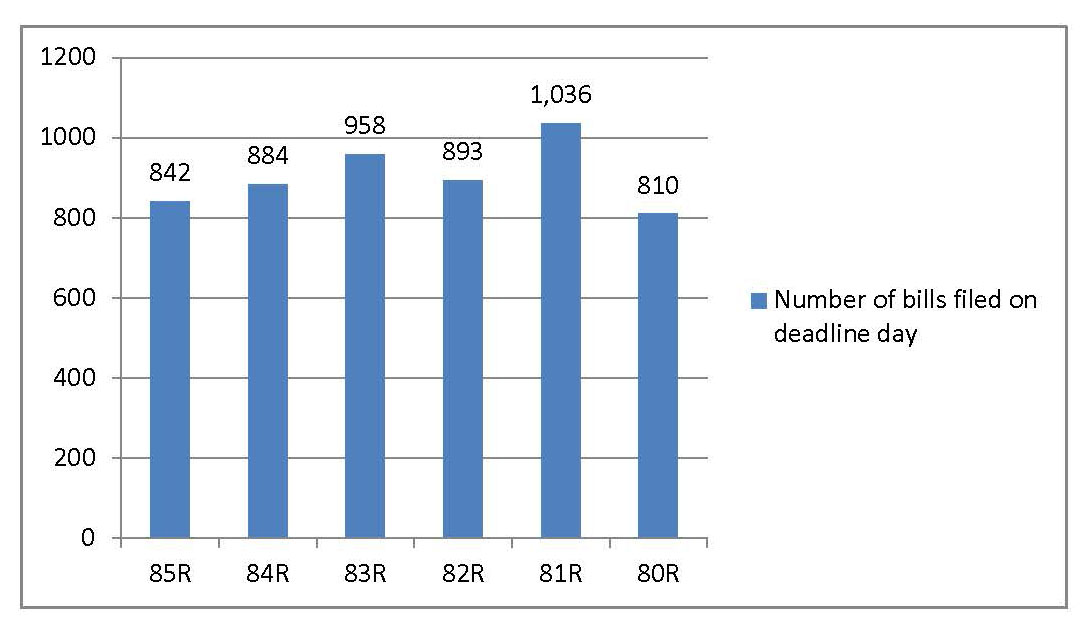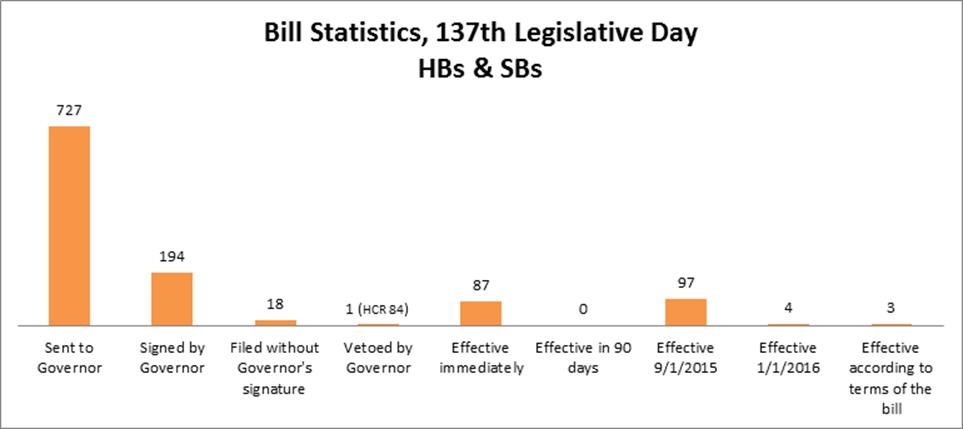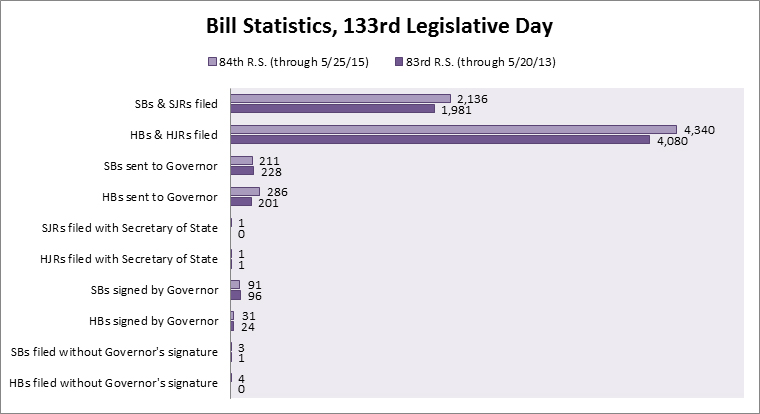|
House and Senate Bills
|
| Filed |
6,276 |
| Sent to the Governor |
1,323 |
| Signed by the Governor |
355 |
| Vetoed by the Governor |
4 |
| Filed without the Governor's signature |
20 |
| House and Senate Joint Resolutions |
| Filed |
200 |
| Filed with the Secretary of State |
7 |
| House and Senate Concurrent Resolutions |
| Filed |
174 |
| Filed with the Secretary of State |
15 |
| Sent to the Governor |
85 |
| Signed by the Governor |
33 |
| Vetoed by the Governor |
1 |
What happens now?
The 84th Regular Session ended June 1, 2015. Bills that passed both the House and the Senate were sent to the Governor for him to sign, veto, or allow to become law without his signature. Joint Resolutions that passed both chambers of the Legislature were filed with the Secretary of State, and will be on the ballot for the November 3, 2015 election.
How much time does the Governor have to act on a bill?
If a bill is sent to the Governor during the legislative session, the Governor has 10 days (not counting Sundays) to sign the bill or return the bill to the Legislature with objection. If after 10 days the bill is not returned to the Legislature by the Governor with objections or he has not yet signed it, the bill becomes law as if the Governor had signed it.
If the Legislature has adjourned sine die, or if the bill is presented to the Governor less than 10 days (not counting Sundays) prior to final adjournment, the Governor has 20 days (counting Sundays) after the final day of the session to sign or veto the bill. If neither action is taken, the bill becomes law without the Governor's signature (Texas Const. art. IV, § 14).
Sunday, June 21, is the 20th day following final adjournment of the 84th Regular Session. It is the last day the Governor can sign or veto bills passed during the 84th Regular Session. To view veto proclamations issued by Governor Abbott for the 84th Regular Session, please visit the library's Vetoed Bills page.
Bill Effective Dates
The library reviews the text of all bills that become law to determine their effective dates, and enters the information into the Texas Legislature Online. To find the effective date of a bill, check the "Last action" field on the bill's main page. In some cases, different sections of a bill may have different effective dates, in which case remarks will be given to provide the information.
In addition to updating the Texas Legislature Online with effective date information, the library compiles a list of bills and their effective dates following each regular and called session. The list is made available on the library's website once it is complete.
Signed Copies of Bills
Bills that the Governor signed or allowed to become law without his signature are sent to the Secretary of State's office, where they are made available online on the Bills and Resolutions page.
You can determine whether a bill sent to the Governor was signed or filed without signature by checking the bill in the Texas Legislature Online. If the bill passed but was filed without signature, you will see the action "Filed without the Governor's signature."
Session Law Chapter Numbers
The Secretary of State's Bills and Resolutions page also lists the session law chapter number that is assigned to each bill that has become law. The session laws contain the text of all bills passed into law during a particular legislative session. Chapter numbers are used primarily for citing a bill in a legislative history annotation.
This entry was posted on June 10, 2015 at 4:53 PM and has received 3016 views.
Print this entry.

